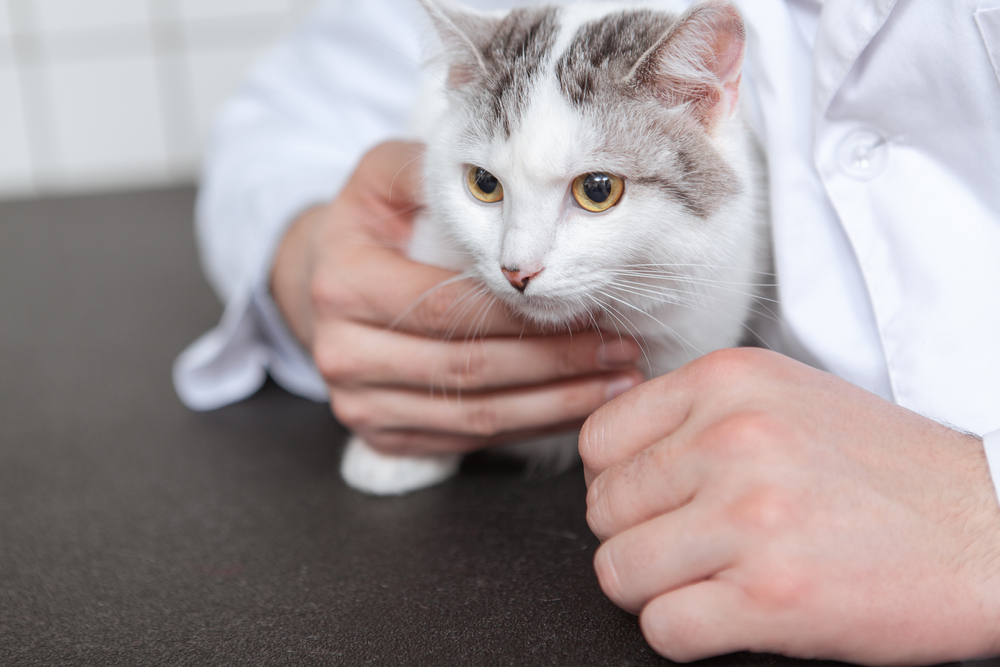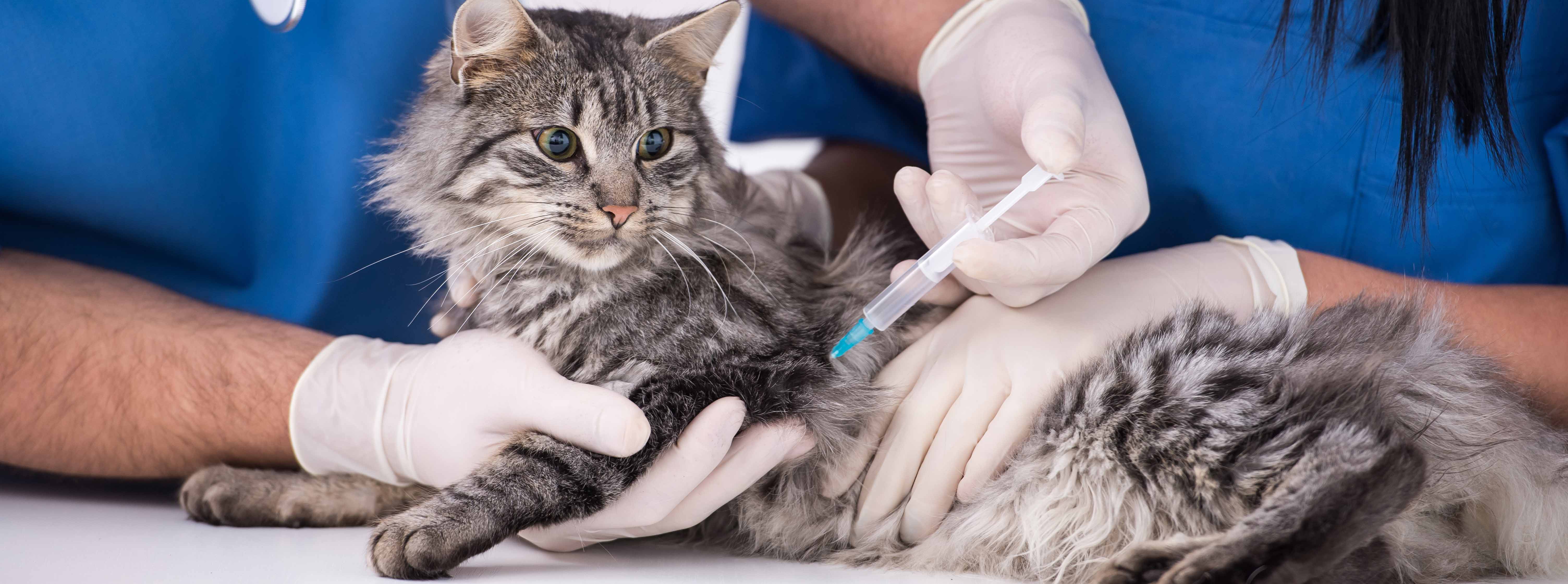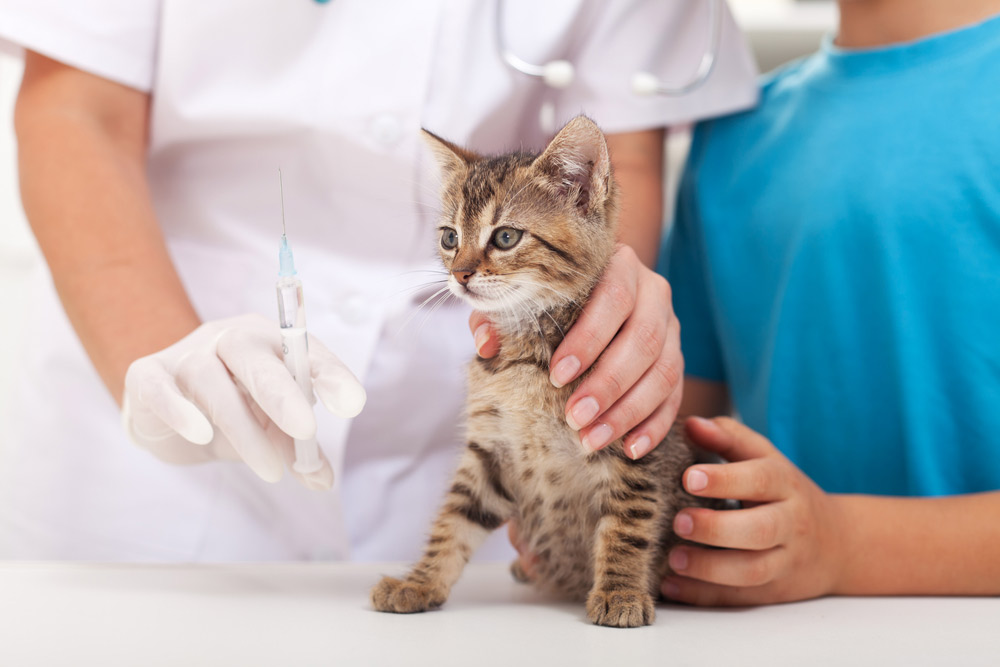cat leukemia vaccine necessary
Assuming Piper tests negative have her vaccinated even if her chances of exposure seem low. The four core vaccines for cats are.

Cat Vaccines Revival Animal Health
Feline leukemia virus FeLV is a virus that infects only cats.
/adult-cat-vaccination-schedule-4846632_V4-ff36ccb34d74410d9652b4307a26e8b3.png)
. Feline Leukemia Virus Vaccination. A single dose is given to cats one year after the last dose of the initial series. The association recommended that vets give only vaccinations that are indicated by a cats lifestyle.
Vaccines that cats require or may require include. Cats vaccinated against leukemia. Testing prior to vaccination is needed to ensure the cat is not already infected with FeLV as it offers no protection to an infected cat.
Your vet will help decide which vaccines are right for your cat. Core vaccines those recommended for all cats and non-core vaccines those that may or may not be necessary depending on the individual cats lifestyle and circumstances. Cats vaccinations against leukemia or leukemia in cats.
An effective subunit vaccine against feline leukemia virus infection and related diseases has been developed. For example an indoor-outdoor. Currently vaccines against panleukopenia herpesvirus calicivirus and rabies fall into the core vaccine.
Cats vaccinated against leukemia. Feline Rhinotracheitis VirusHerpesvirus 1 FVRFHV-1 Feline Calicivirus FCV Feline Panleukopenia FPV. The safety and the efficacy of several feline leukemia virus FeLV vaccines for 16-week-old kittens were determined.
Vaccination with the soluble tumor cell antigen vaccine proved successful in preventing the induction of feline leukemia virus infection. Suggested Articles Need for Rabies Vaccination for Indoor Cats Feline Leukemia Virus Feline Immunodeficiency Virus Feline Infectious Peritonitis Vaccines are preparations that resemble infectious agents like bacteria or viruses but are not pathogenic disease causing. Appropriate dewormingparasite therapy usually done monthly in outdoor cats Heres why you need these specific vaccines and annual tests for your outdoor.
When administered to an animal they train the immune system to protect against these infectious. Seroprevalence data for FeLV and FIV in various populations of Canadian cats are reviewed and recommendations for testing and management of infections by these viruses in cats in Canada are presented. Only cats that test negative for FeLV should be vaccinated and even those that have received the vaccine should be tested if there has been a possible exposure to the virus.
And take a dose every one year for a cat that lives in a high-risk environment. The type and frequency of vaccines given after that point varies considerably depending on a cats lifestyle and where you live. The vaccines were made from living virus formaldehy.
Feline herpesvirus Feline calicivirus Feline panleukopenia virus Rabies Feline leukemia virus. This serious viral infection spreads through many bodily fluids like saliva feces urine and milk. There is no treatment for FeLV therefore preventing infection through vaccination is highly recommended.
The vaccine is recommended in kittens and then 12. Feline leukemia virus FeLV and feline immunodeficiency virus FIV are common and important infectious disease agents of cats in Canada. A cat that is totally indoors and lives in an apartment building would be a reasonable candidate for less frequent vaccination while a cat that goes outdoors or is in frequent contact with other cats would be considered to be at high-risk and should be vaccinated more frequently.
Some of the core vaccines can be given as early as 6-8 weeks. Feline panleukopenia is caused by feline parvovirus FPV. Feline leukemia virus FeLV is a virus that infects only cats.
Vaccinations can be divided into two broad categories. As modern vaccines have proven to be safe and effective against this common cancer Id suggest you have your cat checked for feline leukemia she could have been infected in utero or while nursing. Vaccination against FPV is highly recommended for all cats.
In addition vaccines can be given to cats at high risk of exposure such as those who go outside or live in shelters or catteries. The American Association of Feline Practitioners vaccination guideline recommends that kittens get a full series of vaccinations against panleukopenia feline herpes type 1 calicivirus feline leukemia and rabies followed by a booster one year later. There is no treatment for FeLV therefore preventing infection through vaccination is highly recommended.
Others are given later. Testing prior to vaccination is needed to ensure the cat is not already infected with FeLV as it offers no protection to an infected cat. Annual blood test for feline leukemia virus and feline immunodeficiency virus.
Full text Get a printable copy PDF file of the complete article 10M or click on a page image below to browse page by page. One protects against feline leukemia or FeLV. Vaccination needs of adult cats should be assessed at least once yearly and if necessary modified on the basis of an assessment of their risk.
Infection with FeLV can cause a variety of clinical signs impacting a cats longevity and quality of life. The test should not be given before 30 days after the possible. Vaccination and identification of infected cats is important in preventing disease transmission.
Various formulations are available including inactivated whole virus vaccines recombinant subunit vaccines. Cats vaccinated against calicivirus. Vaccination against rabies feline panleukopenia virus feline rhinotracheitis virus feline calicivirus and feline leukemia.
Therefore as long as there is no chance of escape indoor cats dont need the vaccine for FeLV at. Western blot analysis identifies FeLV-gp70 p27 p15 p12 and p10 in the subunit vaccine preparation. The retrovirus status of every cat at.
Vaccines were derived from an FL74 lymphoblastoid cell line that has been in continuous tissue culture passage for about 4 years. Indoor cats are not at risk of contracting FeLV. Based on recommendations by the American Association of Feline Practitioners current research and expert opinion recommends FeLV vaccination for all kittens and then on an as-needed basis for adult cats.
This vaccination is given by taking one dose every two years for cats with low risk. Then we repeat the dose once every 3 years. Most agree that FeLV vaccination is a core vaccine for kittens.
And genetically-engineered subunit recombinant vaccines linked with a canary pox vector virus. Feline Leukemia FeLV vaccines are licensed to stimulate immunity to FeLV in cats. Cat vaccination against leukemia or leukemia in cats.
The source of the vaccine immunogen is feline retrovirus persistently infected cells that continuously synthesize and shed virus polypeptides. Although the FeLV vaccine is not considered a core vaccine in adult indoor cats it is highly recommended for cats that spend time outdoors. Cats vaccinated against Bordetella virus.
This vaccination is given by taking one dose every two years for cats with low risk. Feline leukemia virus FeLV is one of the most common infectious causes of disease of cats globally.

Feline Leukemia Vaccine Felv For Cats Great Pet Care
/adult-cat-vaccination-schedule-4846632_V4-ff36ccb34d74410d9652b4307a26e8b3.png)
What Is The Average Adult Cat Vaccination Schedule

Does My Cat Need To Be Vaccinated For Feline Leukemia Tucson Az Adobe Veterinary Center

Cat Vaccinations Mercy Pet Clinic

Cat Vaccinations Harbour Cities Veterinary Hospital

Vaccines For Your Cat Cats On Broadway Veterinary Hospital
Feline Leukemia Virus Vaccination Today S Veterinary Practice

Fvrcp Vaccine For Cats Veterinarian In Pinson Al Clay Chalkville Animal Clinic
